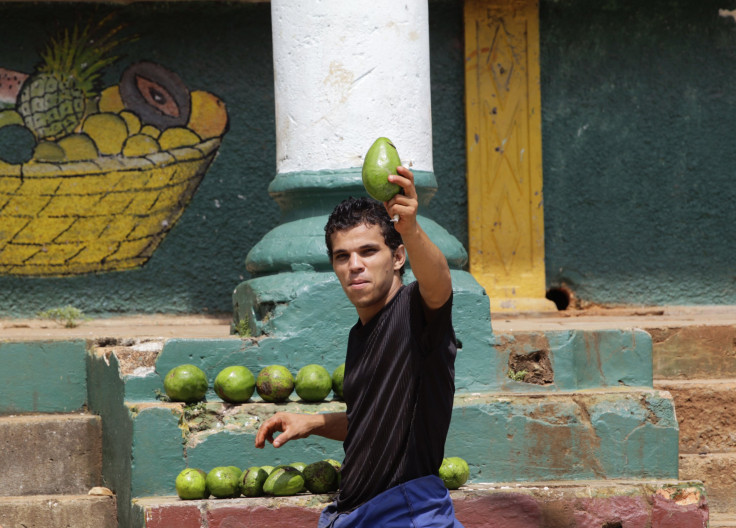Australia to become one of world's largest avocado producers

The Australian avocado industry has developed steadily in the past 20 years. The growth has been such that the country will soon become the third or fourth largest producer in the world. It is estimated that in the past 20 years, Australia's avocado production has increased from 18,000 tonnes a year to nearly 64,000 tonnes in 2015. Out of the total production, nearly 20 percent is exported to Asia and Europe.
Avocados are considered to be one of the healthiest food products available in the market. These constitute one of the rare fruits that can be used to prepare a meal for any part of the day – breakfast, supper or dinner – or in any flavor – sweet, savory or tangy.
In addition to the flexibility in terms of meal preparation, avocado has several health benefits. It is rich in minerals and vitamins and several research in the past has shown the effect of avocados in lowering the cholesterol and oxidative stress in the blood stream.
In an interview with the International Business Times, Antony Allen, the president of the International Avocado Society, revealed that Australia currently has the highest number of English-speaking consumers of avocados in the world.
Even though Mexico, followed by Chile, is the number one avocado producer in the world with the highest number of Spanish-speaking consumers, Australia stands behind no country in the list in terms of annual production.
“An Australian consumes around 3.2 kilos avocados per year on an average, while a Mexican consumes 10 avocados in a year. The way avocado industry is growing in the country, it is likely that Australia will become the third or the fourth largest producer in the world, but it will be difficult to beat Mexico or Chile in terms of annual production,” said Allen.
“We share a healthy relationship with the Mexican producers – there is no rivalry.”
Since 80 percent of the consumers of the total annual avocado production in Australia lie within the country, there is a huge domestic market. In addition, due to a huge surge in the global demand of avocados, the need to expand the business and the avocado industry is the next big thing in Australia.
Allen further believes that with the number of Mexican food chains that are coming up in Australia, the demand for avocado is expected to increase even further.
“Everybody has heard of Chipotle and its famous guacamole, a popular Mexican delicacy. The popular dish comes in the form of a salad or a dip, based on avocado. However, it is primarily a fast-food chain,” said Allen.
“In terms of quality, Australian already has two restaurants that are one-level above than any normal fast food chain – Mad Mex and Guzman y Gomez. They prepare avocado-based dishes and are really popular. The popularity of such Mexican restaurants has spiked in the past four years and many more such chains are expected to come in the near future. Therefore, it is necessary to ensure that the future demand of avocados in Australia is met by an increased production.”
Avocado trees are vulnerable to fungal, bacterial and viral infections, in addition to the other nutritional disease. A plant disease could result in pitting, spotting, rotting of discoloration of a part or the entire tree. Two of the major diseases that affect almost the entire plantation of avocado trees in Australia include Phytophthora root rot and Anthracnose.
However, Allen says that in terms of disease management, Australia has made sure to make no compromise in adopting the best practices. While Phytophthora is controlled with the help of an innovative biological and chemical control, Anthracnose is managed by spraying copper-oxychloride on the trees.
While Mexico and Australia both market avocados through retailers and generic marketing programmes, Australia additionally uses social media as an important tool for marketing. Allen says that ads on televisions were a thing of the past, now people believe what they see on social media.
“Australia prefers to follow a targeted marketing approach by using the social media sites, such as Facebook. For example, females in the household have the upper hand in deciding what to serve for breakfast or dinner at home. Therefore, our approach targets such females by telling them about the health benefits of avocados, how they can bring about a change, and the need to include avocados in their daily diet.”
The year-around growth of the avocado industry in Australia has created an ample number of job opportunities in all the states of the country. From cultivation to transportation and supply chain, all the regional areas have a designated workforce assigned to the job is expected to grow as well.
Recently, the U.S. Food and Drug Administration, or FDA, banned the import of cilantro from the Mexican state of Pueblo for three months. The decision came after it was found that the herb came from the Mexican farm contaminated with toilet paper and human faeces. The contamination led to an outbreak of diarrhea in the US. Cilantro, commonly known as coriander, is one of the main ingredients of guacamole.
In addition to his job as a president of the International Avocado Society, Allen is the CEO of the Avolution, a company dedicated to deliver a lean supply chain model to the avocado and litchi growers.
The Avolution provides the best available solutions and strategies to avocado growers, that can potentially help them meet the challenges of the increasing global demand. Some of these strategies include right transport, right packaging and cost-effective disease control methods.
Contact the writer at feedback@ibtimes.com.au, or let us know what you think below.





















